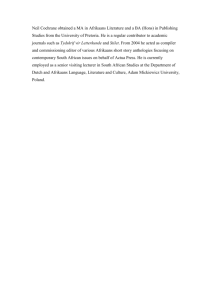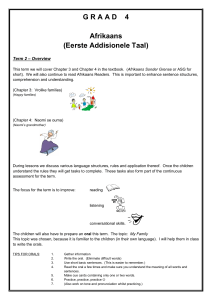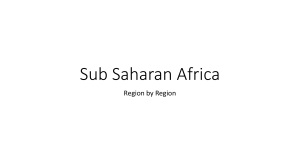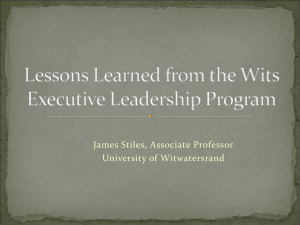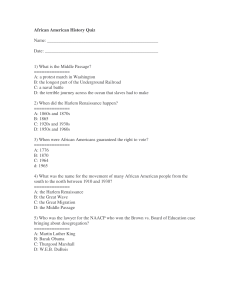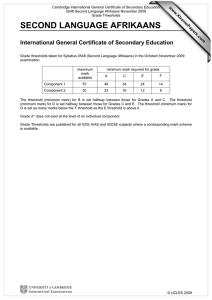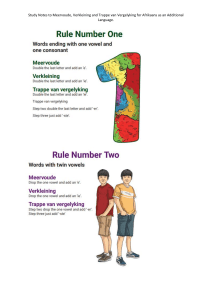Activity 8. Student Protests in South Africa (1976) Background:
advertisement
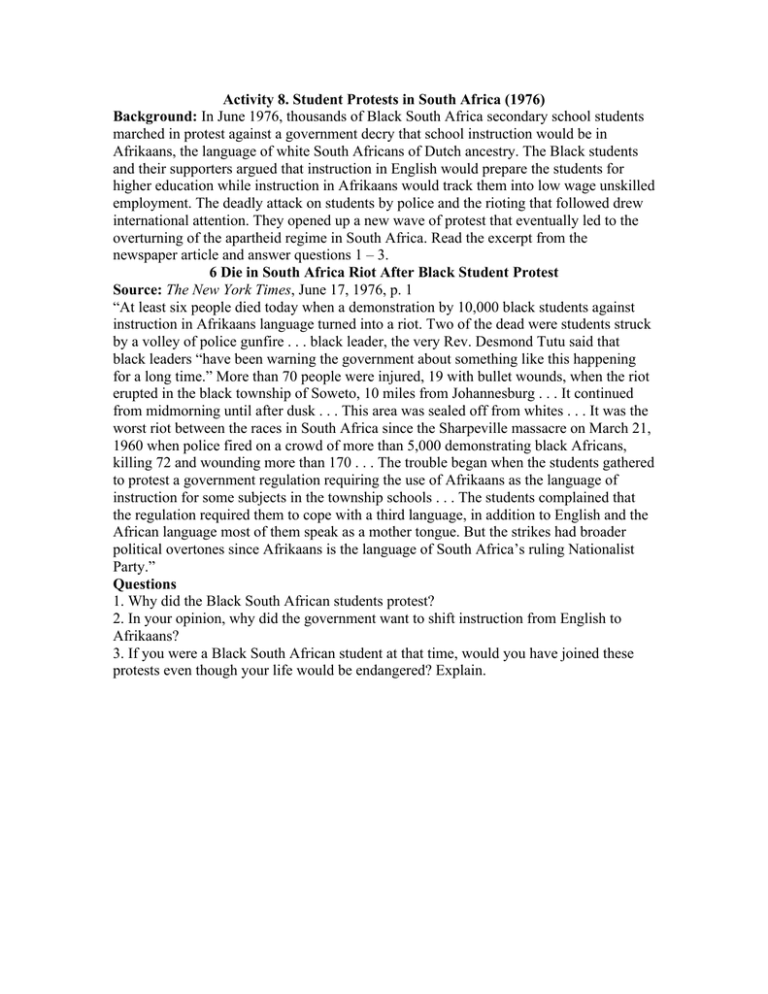
Activity 8. Student Protests in South Africa (1976) Background: In June 1976, thousands of Black South Africa secondary school students marched in protest against a government decry that school instruction would be in Afrikaans, the language of white South Africans of Dutch ancestry. The Black students and their supporters argued that instruction in English would prepare the students for higher education while instruction in Afrikaans would track them into low wage unskilled employment. The deadly attack on students by police and the rioting that followed drew international attention. They opened up a new wave of protest that eventually led to the overturning of the apartheid regime in South Africa. Read the excerpt from the newspaper article and answer questions 1 – 3. 6 Die in South Africa Riot After Black Student Protest Source: The New York Times, June 17, 1976, p. 1 “At least six people died today when a demonstration by 10,000 black students against instruction in Afrikaans language turned into a riot. Two of the dead were students struck by a volley of police gunfire . . . black leader, the very Rev. Desmond Tutu said that black leaders “have been warning the government about something like this happening for a long time.” More than 70 people were injured, 19 with bullet wounds, when the riot erupted in the black township of Soweto, 10 miles from Johannesburg . . . It continued from midmorning until after dusk . . . This area was sealed off from whites . . . It was the worst riot between the races in South Africa since the Sharpeville massacre on March 21, 1960 when police fired on a crowd of more than 5,000 demonstrating black Africans, killing 72 and wounding more than 170 . . . The trouble began when the students gathered to protest a government regulation requiring the use of Afrikaans as the language of instruction for some subjects in the township schools . . . The students complained that the regulation required them to cope with a third language, in addition to English and the African language most of them speak as a mother tongue. But the strikes had broader political overtones since Afrikaans is the language of South Africa’s ruling Nationalist Party.” Questions 1. Why did the Black South African students protest? 2. In your opinion, why did the government want to shift instruction from English to Afrikaans? 3. If you were a Black South African student at that time, would you have joined these protests even though your life would be endangered? Explain.
